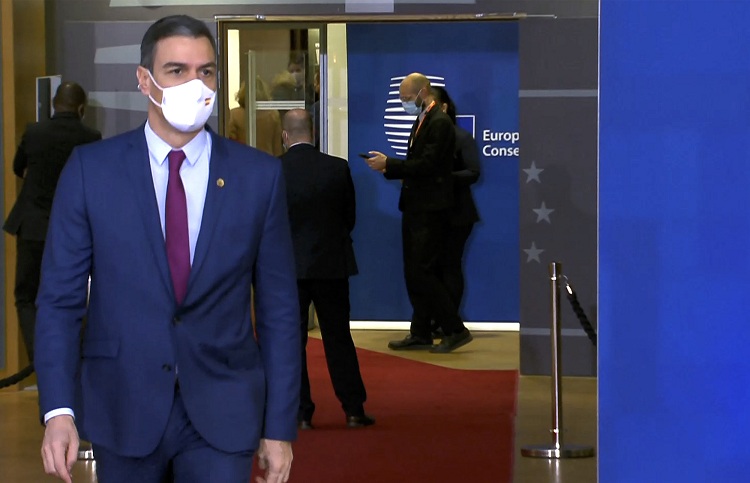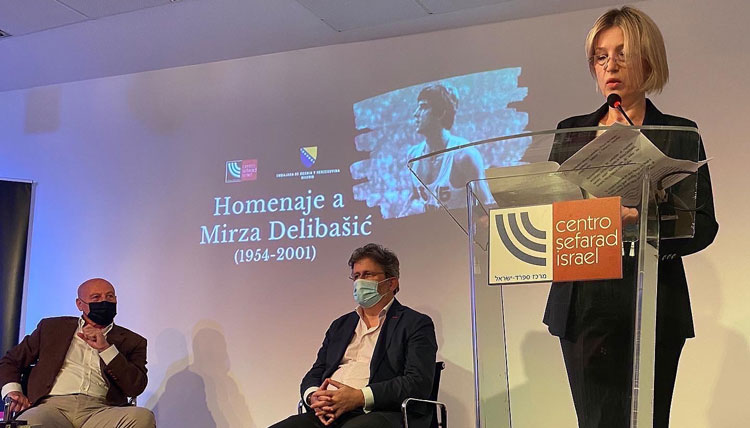The Diplomat
The Spanish government’s proposals to curb the energy price boom fell short again yesterday at the EU, specifically at the European Council meeting, where the only thing that Pedro Sánchez has come out clean is the possibility that the Commission will accept joint purchases in cases of emergency.
“We must ensure that the market is able to respond to the growing volatility of prices and the increased penetration of renewable energies, that consumers can benefit from the competitive prices of green technologies and that a stable supply of gas as a transitional energy is guaranteed,” said Sánchez at the press conference following the Council, held in Brussels.
Sánchez showed up in Brussels ready to move forward with his proposal in favor of a joint energy purchasing platform to deal with rising prices, but the debate ended without any agreement due to the opposition of many countries that still consider that punctual measures are enough (among them Germany) and due to the blockage of the Czech Republic and Poland to any agreement. Spain’s proposals to deal with rising energy prices had the support of France, Italy, Portugal, Greece and Romania, which together represent more than 45% of the European Union’s population.
“We have not been able to reach an agreement, but that does not mean that we are not going to continue discussing it,” said Sánchez. “We must provide consumers, businesses and industries with a stable gas supply at affordable prices based on storage and joint gas purchases,” he continued. “Unfortunately, there have been states that have not accepted this minimum agreement that for us was enough to be able to move forward,” he added.
In any case, the head of the Executive valued positively the measures presented by the European Commission which, in line with Spain’s proposal, include the possibility of States joining together to make joint purchases in cases of emergency and the creation of strategic gas reserves. “Spain is leading the way in the debate on energy price hikes in the EU despite the difficulties,” said Pedro Sanchez. “Yesterday (Wednesday), the Commission proposed to put in place a joint gas purchase and a strategic reserve. We will continue to work to give a common response to this issue,” he added.
Pandemic, Ukraine and Belarus
During the Council meeting – the first without former German Chancellor Angela Merkel for 15 years – the 27 addressed other issues, such as the pandemic, EU security and defense, the external dimension of migration, the situation in Belarus and Ukraine, the EU’s external relations and the southern neighborhood.
Regarding the pandemic, the President regretted the “lack of coordination” following the decision of countries such as Italy, Greece or Portugal to increase surveillance for EU citizens, including those vaccinated. Sánchez therefore urged “extreme coordination” at the European level because “together we are stronger”. The 27 committed themselves to continue vaccinating and recognized the need for coordination, but did not go further. In Sanchez’s view, the EU should adopt “a less restrictive and more practical approach, based on vaccination”.
As for the situation in Ukraine, EU leaders reached an agreement to adopt tough sanctions against Russia in case of military aggression against this country. “Any Russian aggression against Ukraine will have major consequences and a harsh cost, including restrictive measures coordinated with partners,” they warned. In this regard, Sánchez – who met Wednesday in Brussels with Ukraine’s president, Volodymyr Zelenski – stressed Spain’s “constant, coherent and consistent commitment to the principle of sovereignty and territorial integrity of Ukraine” and insisted on the importance of “keeping the channels of dialogue open and achieving a de-escalation of tension in the region.”
On Belarus, the 27 condemned the actions of the Minsk regime to destabilize the EU and reiterated solidarity with the most affected countries. Regarding this issue, Sanchez showed his concern for the internal situation of the country and the hardening of repression “demonstrated in the last sentences against political leaders”.







